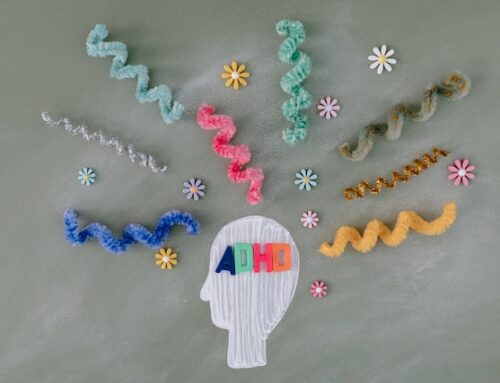While it is most commonly diagnosed in childhood, ADHD, or attention-deficit/hyperactivity disorder, also impacts adults and can go undiagnosed until adulthood. Unfortunately, having ADHD also means that someone likely has a co-existing condition or comorbidities.
Living with any mental health disorder can make life challenging; adding another one into the mix can be downright annoying. Please keep in mind that just because someone has ADHD does not mean that they absolutely will have another condition.
The focus of this week’s post is on some of the most common comorbidities that exist alongside ADHD.
4 Common Comorbidities With ADHD
1. Anxiety Disorders
Anxiety disorders are one of the most common mental health conditions in the world. So, it isn’t too surprising that someone with ADHD can also have an anxiety disorder.
The most common types of anxiety disorders are:
- Generalized anxiety disorder (GAD)
- Social anxiety disorder
- Phobias
Anxiety disorders are characterized by uncontrollable thoughts and intense fears/worries. It also has many physical symptoms, such as a racing heart, shallow breathing, clamminess, and muscle tension, and can cause insomnia.
2. Mood Disorders
Many people mistakenly think that anxiety is a type of mood disorder. Rather, mood disorders refer to conditions such as depression and bipolar disorder.
When someone has a mood disorder, it impacts their ability to regulate their emotions effectively. Symptoms of mood disorders include:
- Sadness
- Hopelessness
- Sleeping too much or not enough (insomnia)
- Changes in eating habits
- Low self-esteem
All of these symptoms and more can exacerbate ADHD symptoms when they are not regulated.
 3. Learning Disabilities
3. Learning Disabilities
It’s common for someone with ADHD, especially children, to have some type of learning disability. Learning disabilities such as:
- Dyslexia (difficulty reading)
- Dyscalculia (the inability to learn number-related concepts)
Both of these conditions make it even more difficult for someone with ADHD to focus on homework, tests, or work projects.
4. Obsessive-Compulsive Disorder (OCD)
OCD is a debilitating condition affecting more people worldwide than previously believed. While many believe it to be an anxiety disorder, it has different signs and symptoms. This also means that someone with ADHD can experience it.
OCD is characterized by uncontrollable thoughts. To ease the anxiety these thoughts cause, someone will perform behaviors or compulsions to calm these thoughts. Unfortunately, these compulsions fuel the obsessive thoughts, creating a vicious cycle.
Treating Comorbidities
So, which do you treat first if you have two existing conditions? The answer to this is complicated and mostly depends on each individual person. Typically, the most prominent condition in someone’s life will be looked at first. For instance, say someone has ADHD as well as depression. If the depression symptoms are overpowering and controlling a person’s life, a licensed professional will likely recommend depression symptoms be addressed first.
Once the more prominent condition is more under control, ADHD will be looked at next.
Differentiating Symptoms of Comorbidities
Many of the comorbidities listed above will have overlapping signs and symptoms. It’s easier said than done to distinguish one from the other because no tests neatly organize everything into little piles. The best way to determine if someone has an existing condition in addition to another one is through careful observation.
Often, this observation is made by journaling the symptoms and signs. Working with a therapist is extremely helpful in determining if someone’s symptoms are just because of ADHD or, for example, a result of anxiety. This can be quite a lengthy process and can feel overwhelming at times. We wish a magic wand could clear all the symptoms someone is experiencing. Unfortunately, that isn’t the case.
But the fantastic news is that through anxiety, depression, or ADHD treatment, you can find relief. Don’t hesitate to reach out to learn more.




